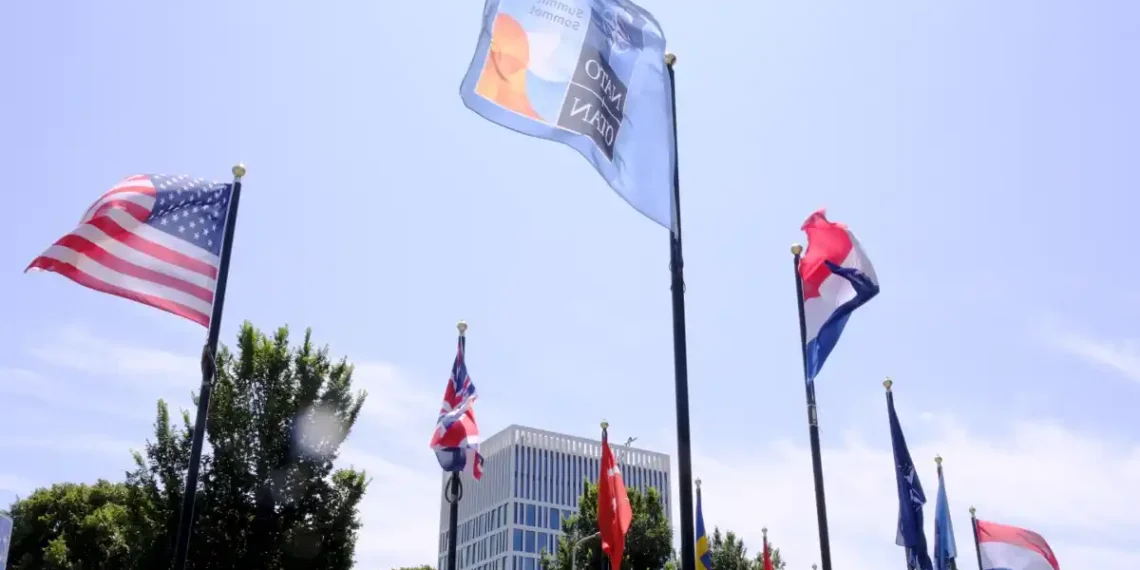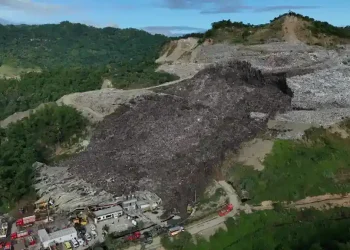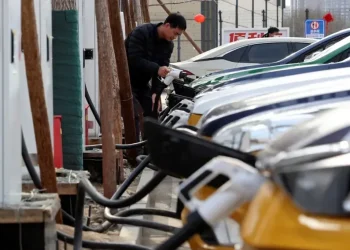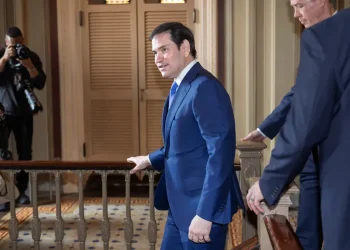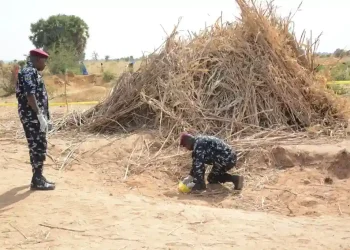Unity and Uncertainty: NATO Leaders Gather Amid Rising Global Tensions
THE HAGUE, Netherlands — A high-stakes NATO summit kicked off Tuesday in the Netherlands, bringing world leaders together at a critical moment for the alliance’s future — and global security at large.
The two-day gathering, widely described as historic, could mark a turning point for the 32-member bloc. Leaders are expected to approve a bold new defense spending target: 5% of each country’s GDP dedicated to security. The move would signal a sweeping escalation in military preparedness, aimed squarely at countering threats from outside the alliance.
Trump’s Return Overshadowed by Iran Strikes and Surprise Ceasefire
Originally, much of the spotlight was expected to fall on U.S. President Donald Trump, who is attending his first NATO summit since returning to the White House. He was poised to claim credit for rallying allies behind the unprecedented military spending pledge — a long-standing priority for his administration.
But the narrative shifted abruptly following Trump’s unexpected strike on three Iranian nuclear enrichment facilities, a move the White House says was designed to weaken Tehran’s nuclear ambitions. Just as stunning was Trump’s sudden announcement that Iran and Israel had reached a “complete and total ceasefire,” shifting global attention from Brussels to the Middle East overnight.
Ukraine Still Front and Center — Even if the Focus Has Shifted
While headlines swirl around Iran, NATO leaders insist that support for Ukraine remains a top priority. The war is now in its fourth year, and NATO Secretary General Mark Rutte emphasized that Ukraine’s defense and sovereignty are “non-negotiable.”
Ukrainian President Volodymyr Zelenskyy arrived in The Hague for a full slate of meetings, though notably absent from a leaders-only session aimed at finalizing the new defense spending plan. He’s expected to meet with Dutch Prime Minister Dick Schoof and will later address the Dutch parliament.
The scene marks a shift from last year’s summit in Washington, where NATO’s closing statement strongly backed Ukraine’s future within the alliance, calling its path to membership “irreversible.”
France and Germany Back Peace, Warn of Long-Term Stakes
In a joint op-ed published Monday in the Financial Times, French President Emmanuel Macron and German Chancellor Friedrich Merz expressed strong support for U.S.-led efforts to secure peace in Ukraine. The leaders pledged to uphold Ukrainian sovereignty and ensure long-term European stability.
“Russia will find in France and Germany an unshakeable determination,” they wrote. “What is at stake will determine European stability for the decades to come.”
They added that Europe must guarantee Ukraine’s future as “prosperous, robust, and secure” — free from Russian aggression.
Bottom Line: As NATO leaders huddle behind closed doors in The Hague, the alliance faces no shortage of urgent challenges — from rising defense budgets and a protracted war in Ukraine, to surprise diplomacy in the Middle East. Whether the summit ends in unity or deepened divisions could shape the global security landscape for years to come.
This article was rewritten by JournosNews.com based on verified reporting from trusted sources. The content has been independently reviewed, fact-checked, and edited for accuracy, neutrality, tone, and global readability in accordance with Google News and AdSense standards.
All opinions, quotes, or statements from contributors, experts, or sourced organizations do not necessarily reflect the views of JournosNews.com. JournosNews.com maintains full editorial independence from any external funders, sponsors, or organizations.
Stay informed with JournosNews.com — your trusted source for verified global reporting and in-depth analysis. Follow us on Google News, BlueSky, and X for real-time updates.
